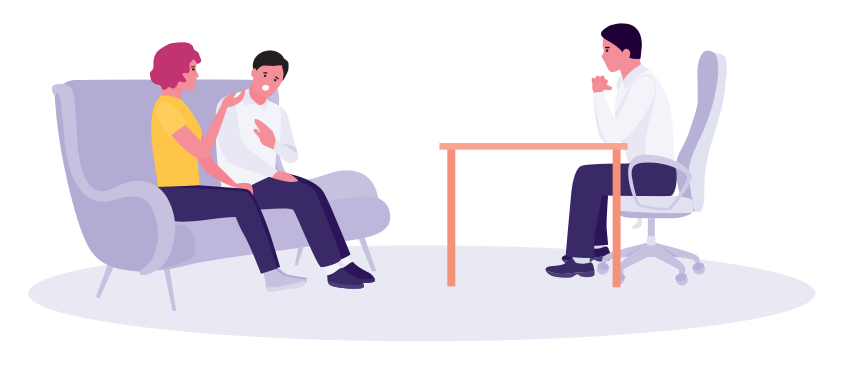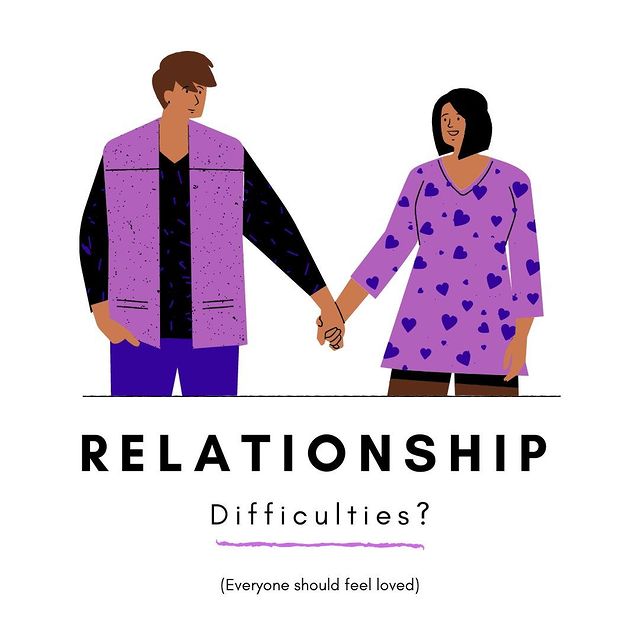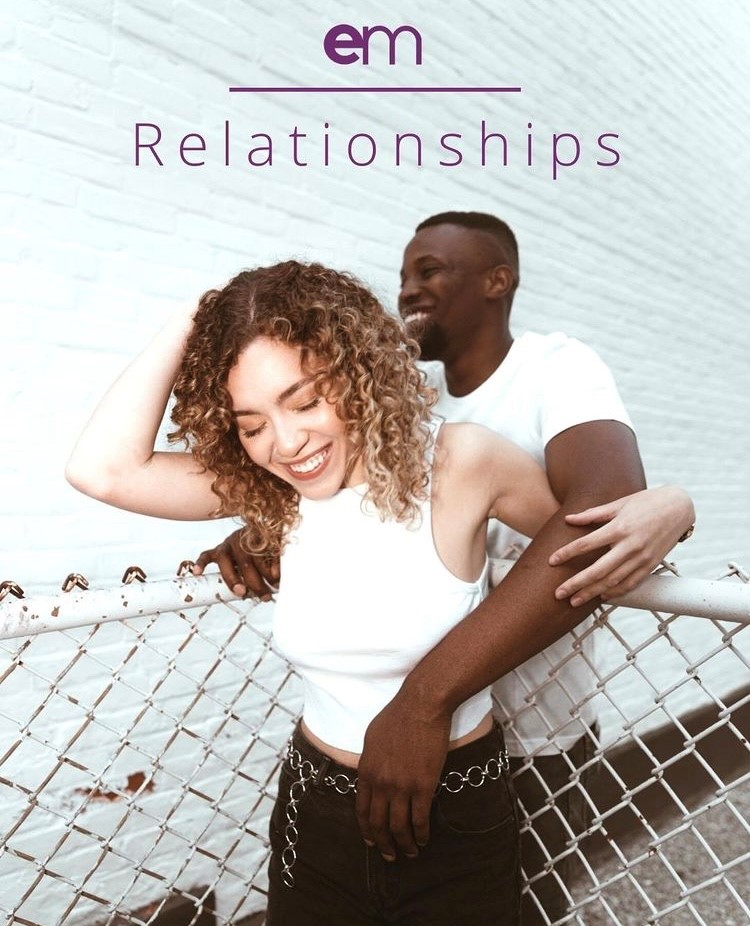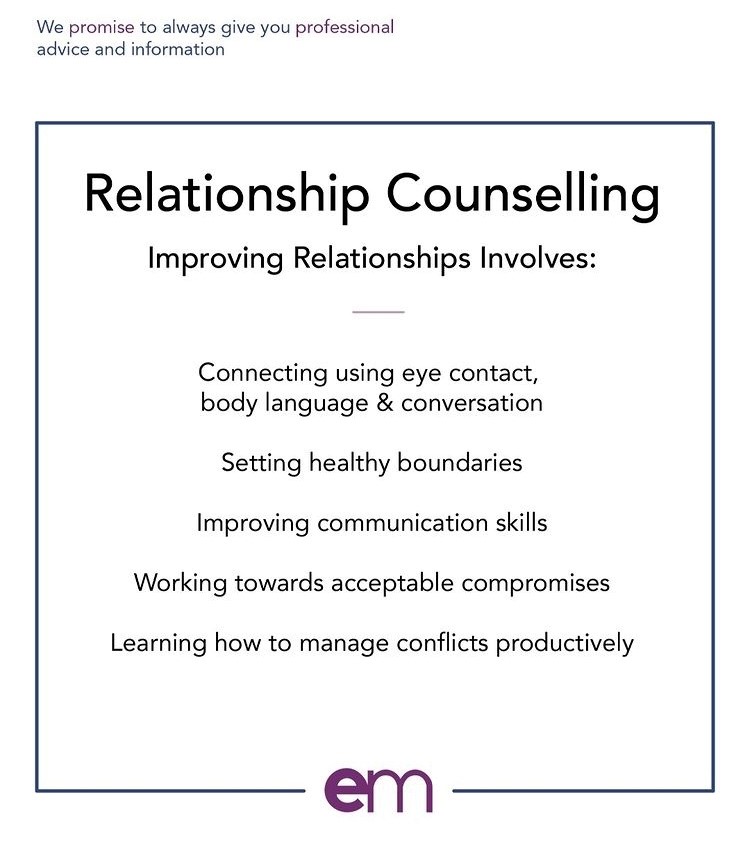Relationship Counselling
WHAT IS RELATIONSHIP COUNSELLING?
Relationship counselling is a space where you can explore your current and past relationships, build awareness to understand why you keep repeating certain unhelpful patterns, and learn skills to improve your communication, so you can find peace and happiness.
On this page you can find out more about some issues that may lead you to seek relationship counselling, and how relationship counselling can help you process your difficulties, and support you in making a plan of how to move forwards.

WHAT IS IT LIKE TO STRUGGLE WITH RELATIONSHIPS?
If you are experiencing relationship difficulties, you may find it hard to connect and share intimacy with others. You may have some issues around trust in relationships, or you may struggle to communicate your feelings in order to feel heard and understood.
You may have struggled with a significant relationship breakdown, whether with a partner, a family member or an important friend. This can be a devastating experience, leaving you feeling rejected, abandoned and emotionally overwhelmed. You may be struggling with hurt and anger over someone’s breach of trust, or guilt and shame over things that you should or should not have done.
Relationship difficulties can cause you to doubt yourself and feel that you are unworthy of happiness. They can also trigger emotional eating and binge drinking as a way of soothing your painful feelings.
Feel Well
If you are interested in our services, arrange a call with our friendly team.
We want to understand what is going on for you, so we can match you with the right practitioner.
We value being clear and open about our prices, so please check Our Fees before booking a call.
EXPLORING ISSUES THAT PLAY OUT IN RELATIONSHIPS
There are many different reasons why you may be seeking relationship counselling. Below is a list of some examples of experiences that may be causing you distress in your relationship.
PAST RELATIONAL EXPERIENCES
Our past experiences can influence the way we interact with our partner, and the way we feel about ourselves.
We can develop expectations of behaviour based on our past relationship experiences. If we have had toxic relationships in the past, we may struggle to trust our partners, communicate effectively or maintain a healthy power balance.
We also develop relationship expectations from our early interactions with our parents. Our attachment styles can influence how we show affection, navigate conflict and respond to difficult emotions.
INFIDELITY
When a partner breaks our trust, by cheating either physically or emotionally, it can leave us feeling betrayed and emotionally exhausted.
You may not understand why your partner has cheated, and you may start doubting yourself and your relationship up to this point. These thoughts and feelings can feel overwhelming, and can affect your self-worth.
If you have cheated on your partner, you may experience guilt and self-loathing. You may have underlying emotions that you feel unable to express to your partner, and feel frustrated as a result.
Infidelity can affect both partners and may result in broken trust and pain, and can lead to both partners pushing each other away.
DISCONNECTION
Sometimes we can feel far away from our partners, and it can be difficult for us to connect with them emotionally, physically and sexually.
You may feel disconnected from your partner, and feel unable to put energy into your relationship. You may feel disconnected for several reasons, including focusing on other commitments, or not feeling ‘present’ in the relationship.
You may also feel that something is just ‘off’, and it is hard to pinpoint why you feel detached from your partner. You might be feeling numb or exhausted when you think about your relationship.
On the other hand, you may feel you are putting in more emotional energy into the relationship than your partner, and may feel frustrated that it is not reciprocated.
Disconnection can result in communication breakdown, feelings of confusion, doubt and resentment.
STRESS
Stress in our lives can affect our ability to cope with our emotions, and can affect the way we interact with our partner.
Situational factors, including work stress, worries about health and illness, and family conflict can cause us to feel overwhelmed, exhausted and intolerant of difficulties that may arise.
This can filter into our relationships, and we can end up having arguments about small things that can become bigger and bigger, which can end up causing rifts between us and our partner.
CRISIS
You may feel that you want your relationship to end, but may not know how to start the process.
Relationships can act like comfort blankets for us, and removing the comfort blanket can make us feel anxious, fearful and uncertain about what the future holds.
Breaking up may be the right choice for you and your partner, but you may feel stuck in a pattern of questioning yourself, avoiding difficult emotions, feeling paralysed to take action.
Feel well
If you are interested in our services, arrange a call with our friendly team.
We want to understand what is going on for you, so we can match you with the right practitioner.
We value being clear and open about our prices, so please check Our Fees before booking a call.
RELATIONSHIP COUNSELLING AT EMOTIONMATTERS
At EmotionMatters, we understand that seeking relationship counselling can be a difficult decision. Our experienced therapists will support you through your therapy journey and help you face your difficult experiences.
Your therapist will help you explore patterns of behaviour, and ways of communicating that may be contributing to your current problems. Improving relationships involves learning skills and tools such as:
- Connecting through eye contact, positive body language and open conversation
- Understanding other people’s emotions
- Setting healthy boundaries
- Improving communication skills by identifying your own frustrations and separating them from what you think the other person is saying
- Identifying needs in relationships and working towards acceptable compromises
- Learning how to manage conflicts in a productive way
It takes courage to acknowledge how you truly feel in a relationship. It may be painful sitting with the reality of your situation, but from here you can start to re-write what happens next, taking each step one at a time.
You will start with a discovery session, for you to see if you feel there is a good connection with your therapist, and to define your goals for therapy.
Moving forward, sessions will take place weekly via Zoom and will last 75 minutes. Depending on your personal circumstances, you and your partner can join the session together in the same room or from separate locations.
MEET OUR COUPLES THERAPISTS
COUPLES THERAPY PRICES
| Therapist | 75-minute session | 50-minute session |
|---|---|---|
| Andreia Jennings | £225 | £155 |
| Christine Everley | £225 | £155 |
Learn more about relationships
Here are some articles and blogs about relationships
SELF HELP FOR RELATIONSHIPS
You may not be ready to talk to us yet, so here are some self-help strategies to help you with your current relationship:
- Make time to spend with your partner on a regular basis.
- Maintain healthy relationships with others outside of your couple relationship.
- Take time to listen to your partner.
- Think about what might be going on underneath seemingly trivial arguments.
- Communicate your thoughts and feelings with your partner.
- Do something unexpected to show your partner you love them.






